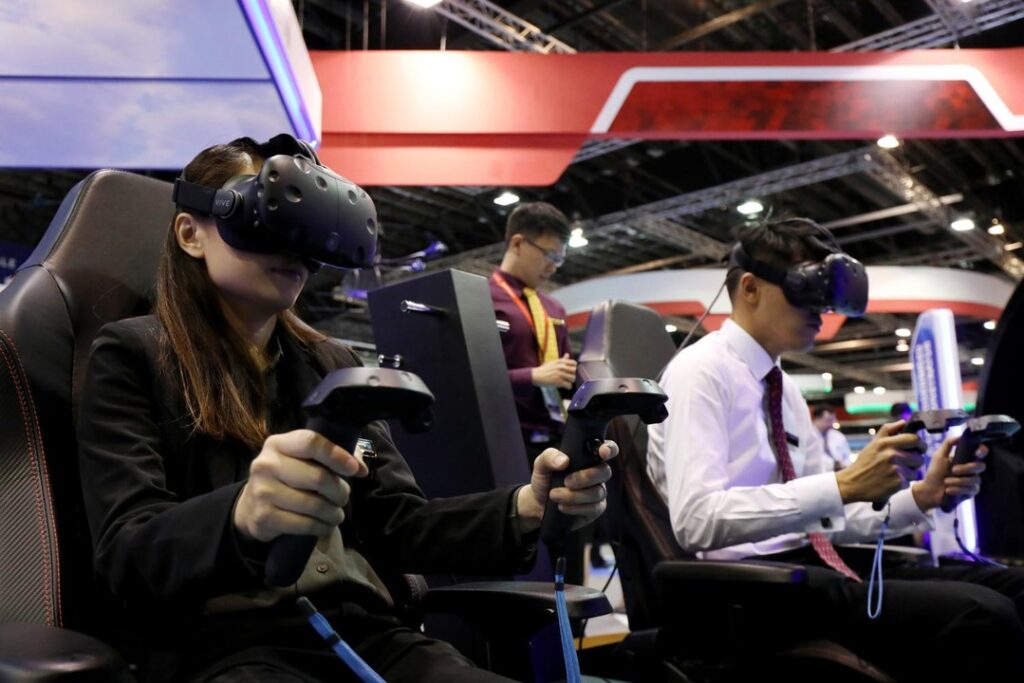Global Avionics Round-Up from Aircraft Value News (AVN)
VR training is emerging as a critical trend in avionics, promising to revolutionize how pilots, engineers, and maintenance crews are trained.

Rapid advancements in virtual reality (VR) are transcending gaming and entertainment, finding a pivotal role in industries like health care, engineering, and now aviation.
VR training is emerging as a critical trend in avionics, promising to revolutionize how pilots, engineers, and maintenance crews are trained. VR is transforming aviation training by offering immersive, realistic environments for skill development while reducing costs and improving safety.
The complexity of modern aircraft systems and the demand for highly skilled aviation professionals make VR an ideal training solution. VR’s ability to simulate real-world scenarios in a controlled environment allows pilots and technicians to engage in highly realistic exercises.
Trainees can experience flight dynamics, system malfunctions, and emergency procedures without risking equipment or lives. The technology also enables repetitive practice, which is crucial for mastering complicated procedures, all while saving time compared to traditional simulators or on-the-job training.
Several key players in recent months have been driving the adoption of VR in aviation, particularly in avionics:
CAE. A global leader in aviation training, CAE has integrated VR into its pilot training programs. The company’s VR-based solutions provide immersive cockpit environments for pilots, enhancing traditional training with virtual scenarios that mimic real-life conditions.
Thales Group. Thales has made significant strides so far this year in VR training for aviation. The company’s platforms combine augmented reality (AR) and VR, creating scenarios for both pilot and maintenance training. Thales’ immersive AR/VR tools allow trainees to troubleshoot avionics systems and practice routine inspections, enhancing their decision-making and technical skills.
Boeing. The U.S.-based aerospace giant is investing heavily in VR for its own aircraft systems and has developed virtual training modules for pilots and engineers. Boeing’s VR solutions focus on operational and procedural training, including emergency protocols and maintenance tasks, providing an efficient and scalable solution for airline operators. As the company grapples with its continuing regulatory woes, it has been beefing up inspection and safety procedures in recent months through an increasing reliance on VR.
Airbus. Archrival to Boeing, the European-based Airbus recently introduced its VR Flight Trainer, which allows pilots to simulate and interact with advanced avionics systems, particularly for the A350 and A320neo families.
A320neo aircraft are particularly leveraging the VR Flight Trainer, which is just one of many factors lifting the aircraft’s base values and lease rates.
Airbus’ emphasis on virtual training reflects the growing demand for digital tools that can keep up with the complexity of modern aviation technology.
So far in 2024, several VR training programs have emerged as benchmarks in the aviation industry:
Project CAVOK by CAE. This project integrates AR and VR for pilot and technician training, combining immersive environments with real-world aircraft components. CAVOK aims to address the shortage of pilots globally by providing high-quality, scalable training.
Thales’ Maintenance VR Suite. Thales has expanded its VR suite to focus on avionics maintenance, enabling technicians to work on virtual replicas of critical aircraft components. The platform includes AI-based learning modules that adjust training difficulty based on user performance, offering personalized learning experiences.
Airbus VR Maintenance Trainer. Airbus’ program, launched in late 2023, offers a fully immersive maintenance trainer that simulates various systems within their A350 and A320neo families. This allows engineers to practice complex repairs and upgrades in a virtual environment before working on actual aircraft.
As aviation technology becomes more advanced, the need for specialized training solutions grows. VR (as well as AR) offer several benefits that make it an indispensable tool in avionics training for 2024 and beyond, notably cost efficiency, safety and risk management, and scalability for the growing workforce.
This article also appears in the October 7 issue of our partner publication Aircraft Value News.
John Persinos is the editor-in-chief of Aircraft Value News. You can reach John at: jpersinos@accessintel.com